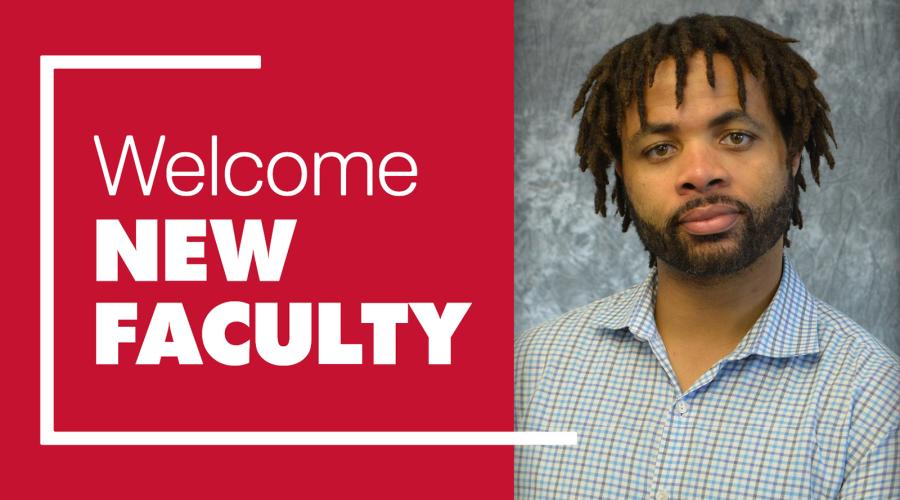
QA With Tristan Ivory
Tristan Ivory comes to Cornell following a stint as an Assistant Professor with appointments in Sociology and Black Studies at the University of Missouri. He received his Ph.D. in 2015 from the Department of Sociology at Stanford University and completed a Postdoctoral Fellowship at the Center for Research on Race and Ethnicity in Society at Indiana University.
What is your research about?
My research is principally concerned with various aspects of Sub-Saharan African geographic, social, and economic mobility. My first research project explored these issues for Sub-Saharan African migrants in Japan. More recently, I have begun a multi-year, multi-sited longitudinal interview project that will track Sub-Saharan middle-class high-school and college students as they begin professional careers in order to assess whether there is a substantial correlation between international migration and better economic and social outcomes (this issue remains largely untested for Sub-Saharan Africans). In addition to these two aforementioned projects, I am also engaged in a long-term collaborative research project with colleagues in Sweden and Japan that addresses issues of foreign-born women's labor force participation in Japan, Sweden, and the United States.
How did you become interested in your field?
I first became interested in my field when I ran into West African migrant workers while I was living in Japan during my junior year of my undergraduate studies. After a few chance encounters, I decided to write an honors thesis on West African migrants living in urban Japan. The rest grew from there.
What impact do you hope your research will have?
I hope my research is one piece that helps clarify what, if any, characteristics separate those who migrate from those who remain and whether migrant social and economic outcomes after migration differ drastically from peers with similar backgrounds who remain in the sending society. Baseline data collection is essential, given that most social demographers anticipate a large net transfer of Sub-Saharan Africans across an increasingly diverse set of geographic regions. Over time, understanding how these frontier migrants fare both socially and economically will increase general knowledge of migrant outcomes as well as provide vital information for policy makers looking to understand what capital investments in host societies and sending societies matter most for optimal individual and group outcomes. Furthermore, prospective migrants will be able to use this information to make more informed decisions about effective resources and strategies for maximizing migration outcomes. This will allow individuals to improve their overall migration experience and hopefully increase their social and economic investments. These benefits will help relatives remaining in the sending country through remittances and other sending society investments as well as members of the host society through improved social relations and increased long-term migrant investment within the host society.
What attracted you to the ILR School?
I very much enjoy the critical and in-depth focus on various labor and workplace issues. My research interests have always been interdisciplinary going back to my undergraduate studies, so there was something pleasantly familiar about the possibility of being in dialogue with colleagues from various disciplinary backgrounds, as I’ve already done so for years and find it to be instrumental in pushing new ideas forward that might not reach their full potential if only informed and critiqued by one discipline. Last, but certainly not least, my new department is International and Comparative Labor and I cannot express enough how happy I am to find a community of scholars who have similar perspectives on the importance of international comparative research. I’ve felt somewhat isolated more than once during my scholarly development and I’m looking forward to being able to have much more substantial conversations with my colleagues about these issues now that this is not the case.
What are you most excited for about your time at ILR?
I think I’m most excited about the opportunity to learn from the staff, students, and fellow faculty members. This may sound somewhat trite, but there is always something new to learn from others and I suspect that I will learn quite a bit in a short span. I can only hope to give as much as I receive during the early stages of this learning process.
Cornell’s “Any Person, Any Study” ethos – how will you be part of that?
I truly believe that education works best when there are several different perspectives merging with one another. Cornell’s “Any Person, Any Study” ethos meshes well with my own beliefs, so I’m eager to do as much as I can to embody and support it.
If you could share one piece of advice with your students, what would it be?
Don’t worry too much about everything working out; instead, focus on learning how to be resilient in the face of adversity.
Besides your work, what's something that you're passionate about?
I really enjoy music. Something from every genre at this point in my life.
What was the best part of your college experience?
Learning to appreciate the variety of ideas and perspectives in the world.
What’s something people are surprised to learn about you?
I’m a proficient (if very novice) baker.


